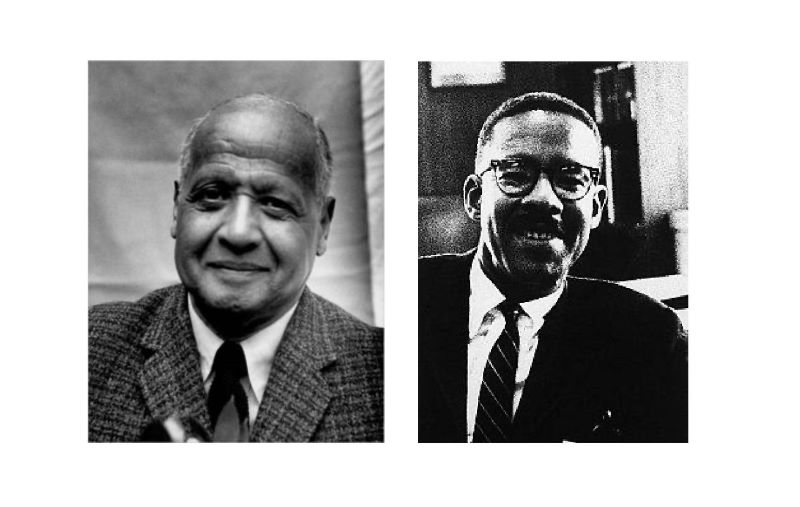
August is Women’s Month in South Africa, since National Women’s Day is celebrated on August 9th every year. This is in commemoration of more than 20,000 women who marched to the union buildings on August 9, 1956, in protest against the extension of pass laws to women.
This year, we celebrate Black women by celebrating and highlighting seven Black female doctors who are blazing a trails for more Black women in medicine.
Dr. Kizzmekia Corbett
Dr. Kizzmekia “Kizzy” Shanta Corbett is an American viral immunologist. She is the Shutzer Assistant Professor at the Harvard Radcliffe Institute and an assistant professor of immunology and infectious diseases at Harvard T.H. Chan School of Public Health. A viral immunologist by training, Corbett uses her expertise to propel novel vaccine development for pandemic preparedness. Corbett spent several years working on a universal influenza vaccine, which is slated for Phase 1 clinical trial. Corbett is also the scientific lead for the Coronavirus Vaccines & Immunopathogenesis Team at the National Institutes of Health (NIH), National Institute of Allergy and Infectious Diseases (NIAID). Corbett was at the helm of the world’s first clinical trial of a COVID-19 vaccine and helped develop the Moderna vaccine, which was approved in December. Dr. Anthony Fauci, director of the National Institute of Allergy and Infectious Diseases, credited this viral immunologist for being right at the forefront of the development of the vaccine. She was highlighted by Time in the 2021 Time 100 Next list.

Dr. Ala Stanford
A pediatric surgeon in the Philadelphia suburbs, Dr. Ala Stanford spent the early days of the pandemic trying to provide COVID-19 tests to the area’s communities of color. When she realized in early April that her fellow Philadelphians in predominantly Black neighborhoods faced disproportionately high rates of COVID and low rates of testing, this private practice pediatric surgeon secured a vehicle, supplies, and volunteers to begin a mobile testing site that would soon become known as the Black Doctors COVID Consortium. The grassroots initiative has since grown into an impressive organization, received and tested more than 20,000 people to date. Stanford chose to become a pediatric surgeon largely because of her childhood experience. “I felt like when kids came to me, there might be things that I recognized were happening in their life that I could help them with, aside from whatever operation they needed,” she says in an interview. “If there was a young mom, then she became my patient too and I would help them both.”

Dr. Susan Karanja
With fewer than 40 neurosurgeons in Kenya, Dr. Susan Karanja is one of just three female neurosurgeons in the country. Karanja knew that her calling was to be a medical doctor, having grown up seeing awareness campaigns about the spread of HIV/AIDS. After completing her internships, Karanja shifted her focus from internal medicine to surgery. She went to South Africa for five years to study for her master’s degree in medicine neurosurgery at the University of KwaZulu-Natal. Karanja notes that the procurement of equipment required for neurosurgery has improved at the KHN. A lot more students are now studying neurosurgery in Kenya and this should significantly alleviate the gap in the ratios.

Dr. Terri Young
Born in Sacramento, California, Dr. Terri Young is a pediatric ophthalmologist and is the Peter A. Duehr Endowed Professor and Chairwoman of the Department of Ophthalmology and Visual Sciences (DOVS) at the University of Wisconsin-Madison. Young has researched the molecular genetics of myopia to help find better treatments for eye disorders. She received her medical degree from Harvard Medical School and has been in practice for more than 20 years. Young received the Robert Wood Johnson Faculty Development Award from 1992 through 1997 and became a member of the editorial board of the Journal of the American Association for Pediatric Ophthalmology and Strabismus in 1998. That same year she received the American Academy of Ophthalmology Honor Award and in 2002, she received the American Association of Pediatric Ophthalmology and Strabismus Honor Award.

Dr. Ncumisa Jilata
In 2017, at the age of 29, Dr. Ncumisa Jilata became Africa’s youngest neurosurgeon after completing her fellowship for the Council of Neurosurgeons of South Africa and is one of just five Black, female neurosurgeons in South Africa. Jilata is an expert on all things related to the central nervous system, which is made up of the brain and the spine. Jilata’s medical journey began in 2003 when she was in the 11th grade. Her rigorous path included a packed course schedule of condensing three years of biology into just one year. She went on to earn her bachelor of medicine and bachelor of surgery (MBChB) degree in 2009 at Walter Sisulu University’s Faculty of Health Sciences. Jilata credits Dr. Coceka Mfundisi — the fourth Black South African woman to work in the field of neurosurgery — for paving the way and providing mentorship for her. “My support system was Dr. Coceka Mfundisi, who broke most of the barriers for me so that my time as a registrar was smoother than it would have otherwise been,” she explained in an interview with Afrotech. In 2017, South Africa’s President Cyril Ramaphosa praised Jilata during his presidency budget vote in Parliament’s national assembly, thanking her and other South African women for breaking barriers in their different fields.

Dr. Lindiwe Sidali
Dr. Sidali, was born in a small town called iDutywa, in the Eastern Cape, South Africa. After high school, she received a bursary from the North West Department of Health to study medicine in Cuba. Sidali became the first African female cardiothoracic surgeon in 2018. She treats patients who suffer from heart, lung, esophagus, diaphragm, and trachea conditions that need surgical intervention and cannot be treated with medicine alone. “It has been an amazing journey, enlightening in a sense that I became aware that I was an African female in a specialty that is famously known for being male-dominated,” said Sidali in an interview with Africa Daily. “There is a rise of female doctors in surgical disciplines overall. However, African females have been given the least opportunities compared to their counterparts. We need opportunities and exposure.”

Dr. Marcella Nunez-Smith
Marcella Nunez-Smith is an American physician. She is an associate professor of medicine and epidemiology at the Yale School of Medicine, where she is also Associate Dean for Health Equity Research and founding director of the Equity Research and Innovation Center. Weeks after the 2020 elections, President Joe Biden named her the chair of his administration’s COVID-19 Equity Task Force, giving her a national stage to push for more accessible testing, treatment, and vaccinations. “Make no mistake about it—beating this pandemic is hard work,” Nunez-Smith said in a New York Times profile. “‘And beating this pandemic while making sure that everyone in every community has a fair chance to stay safe or to regain their health, well, that’s the hard work and the right work.” She is board certified in internal medicine, having completed residency training at Harvard University’s Brigham and Women’s Hospital and fellowship at the Yale Robert Wood Johnson Foundation Clinical Scholars Program, where she also received a masters in health sciences.

Source

Boitumelo Masihleho is a South African digital content creator. She graduated with a Bachelor of Arts from Rhodes University in Journalism and Media Studies and Politics and International Studies. She’s an experienced multimedia journalist who is committed to writing balanced, informative and interesting stories on a number of topics. Boitumelo has her own YouTube channel where she shares her love for affordable beauty and lifestyle content.




